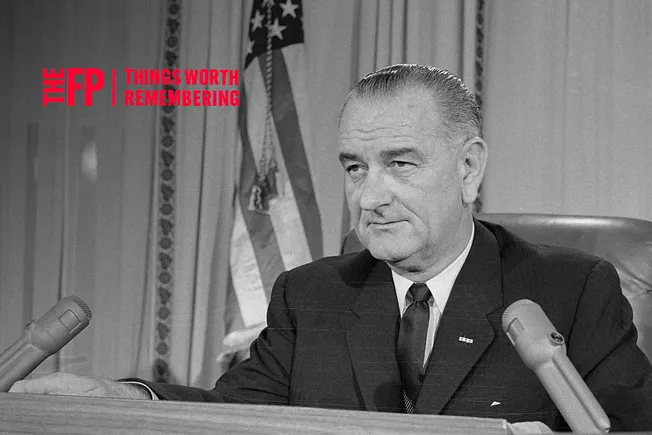When I was at The New York Times, an op-ed by a Republican senator led to a crisis at the paper, and the longest editor’s note that I could remember. At least until the one that was published yesterday about the Gaza hospital bombing (more about that in a moment).
Let’s stick, for a minute, to the brouhaha of June 2020. Perhaps you’ll remember some of the details, like the fact that hundreds of colleagues signed on to a statement saying that Tom Cotton’s op-ed “put the lives of black NYT staffers in danger.” My boss—and the paper’s former Jerusalem bureau chief, James Bennet—was pushed out after being humiliated in front of the paper’s entire staff. His deputy, Jim Dao, was reassigned and ultimately left the paper. Adam Rubenstein, the talented young editor (and loyal friend of The Free Press) who had a hand in working on the offending piece, was scapegoated and resigned. And you know what happened to me.
I mention all of this because on October 17, The New York Times sent a false report to all of its readers that presented, as fact, Hamas talking points. It claimed that Israel had bombed a hospital, killing 500 people: “Israeli Strike Kills Hundreds in Hospital, Palestinians Say.”
The headline was untrue on every level. The bomb was not Israeli, but a Palestinian Islamic Jihad rocket aimed at Israel that misfired. The bomb didn’t hit the hospital, but the hospital parking lot. Hamas claimed that 500 people were killed, but a senior European intelligence source told AFP he thought the death toll was under 50; U.S. intelligence estimates that the number stands between 100 and 300. And it wasn’t Palestinians that said as much to the Times, but the Gaza Health Ministry—which is run by Hamas.
There was no uproar at the Times in response to this journalistic malpractice—at least not in public. Perhaps some expressed their concerns privately, for fear of reprisal.
In the meantime, riots broke out across the world accusing Israel of genocide. Members of Congress, including Rashida Tlaib, broadcast this misinformation.
On Monday, six days after the fact, the Times finally published an editor’s note, saying “Times editors should have taken more care with the initial presentation, and been more explicit about what information could be verified.” I doubt that message reached the rioters in Tunisia who burned the Al Hammah synagogue to the ground.
Rep. Tlaib still hasn’t taken down her X post, which has 37.6 million views as of press time. Indeed, she is standing by it: the congresswoman said in an interview on Monday that “I cannot uncritically accept Israel’s denials of responsibility as fact.” (Astonishing that a sitting congresswoman takes the word of Hamas over the White House and Israel.)
Go back to Cotton. In the case of Cotton, there was not a single correctable error in the piece. Yet in the course of 48 hours, jobs were lost, and people were smeared and demoted simply for doing their jobs. (In fact, the piece, which argued for the legality of the deployment of national guardsmen to restore order in American cities, held up better than I would have thought—especially in light of the use of national guardsmen to quell the violent rioting in the U.S. Capitol on January 6, 2021.) In this case—publishing Hamas PR—has led the paper to issue a soft non-apology, lamenting that the story should have been presented more carefully.
How about maybe not at all until the facts are clear? How about not relying on Hamas propaganda? We think this story is so important because it’s become so familiar. The real question, as the war continues, is if news organizations like the Times will continue to take the word of Hamas uncritically.
Voices from Gaza
One of the biggest challenges for journalists covering this war is Hamas’s media blockade on Gaza. The regime controls on speech, and intolerance of dissenting voices, make it hard to get a proper sense of what ordinary Palestinians in Gaza really think. That’s why we’ve partnered with the Center for Peace Communications, an organization that has built a human network inside Gaza that can deliver honest testimony from ordinary Palestinians while protecting their identities.
In the first video in the series, we asked Gazan civilians what happens to international aid once it arrives in Gaza.
In the latest release, we ask Gazans for their opinions on the hospital blast last week that Hamas blamed on Israel but that subsequent evidence has shown was caused by a rocket fired from within Gaza.
Watch the video here:
In Other News. . .
→ More fun at The New York Times: Perhaps you’ve noticed the byline Soliman Hijjy in recent days connected to stories out of Gaza. Soliman Hijjy, it turns out, is a fan of Hitler.
“In a state of harmony as Hitler was during the Holocaust” he captioned a photo of himself from 2018. In 2012 he wrote “How great you are, Hitler” in Arabic alongside an image of Hitler.
The Times said in a statement: “We reviewed problematic social media posts by Mr. Hijjy when they first came to light in 2022 and took a variety of actions to ensure he understood our concerns and could adhere to our standards if he wished to do freelance work for us in the future.” We believe that people can change their minds, though we might draw the line at explicit adoration of Hitler.
→ WGA can’t condemn Hamas: The Writers Guild of America has decided to stay silent on Hamas’s October 7 atrocities while acknowledging that that decision would strike some of its members as “inadequate.” You bet it will.
WGA East says the decision follows a recent referendum in which members decided that leadership should “move away from public statements” that do not “direct involve our Guild, our industries, or the labor movement.”
Right. A “move away from public statements” from an organization that has weighed in on Asian-American hate and Roe v. Wade and “the cold-blooded murder of George Floyd” . . . and so on and so forth.
There have been some breathtaking examples of moral cowardice in recent weeks, but the WGA stands out for its ability to muster more outrage over AI-generated articles—they are “an existential threat”—than the mass murder of Jews.
→ Hogan dumps Harvard: Moderate Republican and former Maryland governor Larry Hogan has taken a stand against campus intolerance by announcing that he will not take up the fellowships he was due to start at Harvard next month. “I cannot condone the dangerous antisemitism that has taken root on your campus,” said Hogan in a statement Monday, adding that he hoped the move “may help further spur you to take meaningful action to address antisemitism and restore the values that Harvard should represent to the world.”
→ Mike Collins for Speaker! It’s hard to keep up with House Republicans’ attempts to pick a new Speaker after the defenestration of Kevin McCarthy a few weeks ago. Amid all the nihilistic ineptitude, we want to give Rep. Mike Collins a shout-out for lightening the mood with his tongue-in-cheek bid for the top job. Fed up with the impasse, he has announced a trollish run with a policy platform that includes: “Carmine’s for dinner at every conference,” “press releases out/memes in,” “no secret side deals,” and “no more having to listen to Frank Luntz at retreats.” We LOL’d.
→ Shaun King, Hostage Negotiator: Remember Shaun King, the identity politics grifter? Well, he’s back. And this time he’s single-handedly de-escalating the Hamas hostage taking. Or so he claims. In a very strange post on Instagram last Friday, King appeared to take credit for the release of two American hostages in Gaza, contending that he had “worked frantically behind the scenes” to make it happen. This, it seems, is a total fabrication. In a statement, the freed hostages’ family said: “Our family does not and did not have anything to do with him, neither directly nor indirectly. Not to him and not to anything he claims to represent.”
→ Samantha Woll, RIP: On Saturday morning, the 40-year-old Jewish woman and synagogue president was found stabbed to death outside her home. On Monday, the Detroit police chief said that the police did not think the killing was motivated by antisemitism. It is still under investigation.
→ Cashing in on the AI gold rush: While some of us are busy debating whether AI is going to lead to the annihilation of the human race, college kids are more interested in cashing in. The Wall Street Journal reports that more and more students are dropping out to follow their AI dreams. “It’s hard to focus on your homework when you’re thinking about how you could run all the factories in America,” says David Zhi LuoZhang, 20.
If you believe in the work we are doing, please support us by becoming a Free Press subscriber today:













our Comments
Use common sense here: disagree, debate, but don't be a .